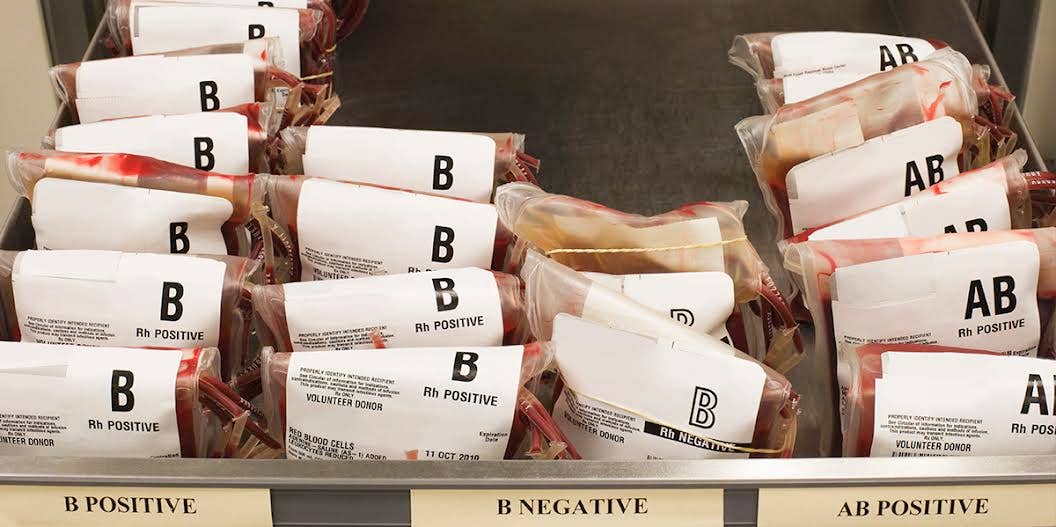The Blood Type That's Most Susceptible To Coronavirus
A new study shows some blood types are more susceptible to COVID-19.
 Getty Images
Getty Images The COVID-19 virus has been making its way around the world since late December. It first appeared in the Wihan province of China, where doctors soon realized it was a brand new disease that no one had ever seen before. No human beings had any immunity to it and it quickly started making thousands of people sick. As of this writing, over 8,000 people around the world have died, including over 100 in the United States.
Now researchers want to know all they can about this virus and how to treat it or vaccinate people against it. Doctors in multiple countries are conducting studies to try and figure out what to do next with a disease that has the potential to kill thousands or even millions of people.
Scientists in China published a paper showing one new finding about the virus. They have discovered that blood type might make some people more susceptible to it than others. This news is interesting but does it change anything?
What blood type is the most susceptible to coronavirus?
Here's what we know about the coronavirus.
The virus, which is new to humans, causes a combination of symptoms, which include a dry cough, a fever, and shortness of breath. For many people, those symptoms get better after a few days on their own. For others, they start to feel worse and can experience difficulty breathing, pain or pressure in the chest, confusion or difficulty arousing from rest, and bluish lips or face. Those are signs that a person need medical attention. The disease can cause respiratory failure and even problems with other organ systems. When that happens, patients need to be hospitalized, sometimes put on a ventilator for breathing assistance, or they can die.
The disease is worse in older people than in younger people and kids barely seem to show symptoms at all but other than that, it seems like it doesn't matter who you are, you can get COVID-19.
Researchers want to know more about the disease.
Because this is a brand new illness to humans, scientists have been racing to find out all they can. One new guideline is a WHO warning that ibuprofen or other anti-inflammatory drugs may make symptoms worse. A study in the medical journal The Lancet suggested that an enzyme that responds to anti-inflammatory drugs could somehow worsen COVID-19 infections. WHO spokesperson Christian Lindmeier told reporters his organization is looking into it more. "In the meantime, we recommend using rather [acetaminophen], and do not use ibuprofen as a self-medication. That's important," he said.
People on anti-inflammatories for other conditions should consult their doctors.
Now scientists think blood type may make people more susceptible to coronavirus.
Another study just came out that deals with trying to find commonalities between patients The study led by Wang Xinghuan of the Zhongnan Hospital at Wuhan University, looked at the blood from 2,173 people in China who had been diagnosed with the coronavirus. What they discovered was interesting. Blood type O is the most common type in China, with 34% of the population having that blood type. However, around 41% of COVID-19 patients in the study had blood type A. The study looked at patients in three hospitals so it wasn't limited to a single town or city. People with Type O blood only made up 25% of the coronavirus patients in the study. Moreover, out of the 206 patients in the study who died, 85 had blood type A. That's 41% of deaths in the study group.
Should people with type A blood be scared?
Evidently, this is the kind of data that scientists love but isn't really anything that people who aren't conducting studies should get excited about. Gao Yingdai, a researcher with the State Key Laboratory of Experimental Haematology in Tianjin told reporters: "If you are type A, there is no need to panic. It does not mean you will be infected 100 per cent. If you are type O, it does not mean you are absolutely safe, either. You still need to wash your hands and follow the guidelines issued by authorities.”
Some blood types are more resistant to COVID-19.
There is one group of people that should keep this in mind, however.
For the general public, this news is little more than a blip and a reminder to wash hands a few extra times, medical staff working around COVID-19 patients might want to pay closer attention. “It might be helpful to introduce ABO blood typing in as a routine part of the management of Sars-CoV-2 and other coronavirus infections, to help define the management options and assess risk exposure levels of people,” Wang wrote in the paper.
What can we all do in the meantime?
We know you've read this a million times already but we all just need to remain vigilant about washing our hands and following the rules of social distancing. Leaders are giving guidance for how people can interact and that gets updated pretty much daily on the CDC website.
Rebekah Kuschmider has been writing about celebrities, pop culture, entertainment, and politics since 2010. She is the creator of the blog FeminXer and she is a cohost of the weekly podcast The More Perfect Union.

